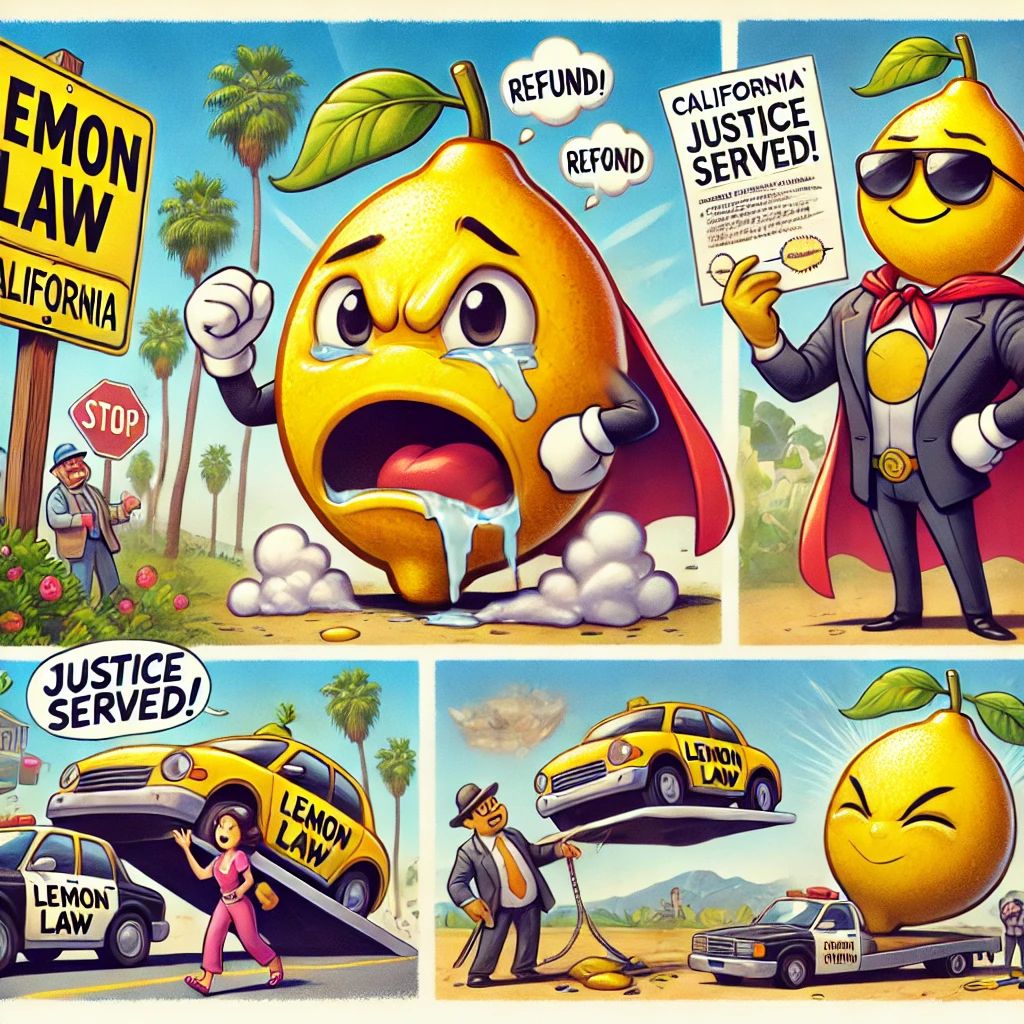
Ever heard of the term “lemon” used to describe a defective car? If you’ve found yourself with a vehicle that just can’t seem to be repaired, California’s Lemon Law might be exactly what you need. Designed to protect consumers, this law ensures you don’t get stuck with a faulty car. Let’s break down what Lemon Law is, how it works, and what it covers—all in a straightforward and easy-to-understand way.
What Does California’s Lemon Law Cover?
California’s Lemon Law isn’t just for new cars—it extends to used vehicles still under the manufacturer’s warranty. Here’s what it covers:
- Types of Vehicles: Cars, trucks, vans, SUVs, and even motorhome chassis, cab, and drive train. However, after-market parts like van conversions aren’t included.
- Dealer-Owned and Demonstrator Vehicles: These are also eligible under the law.
- Personal or Business Use: Vehicles bought or leased for personal, family, household, or even certain business purposes are protected.
What It Doesn’t Cover:
- Off-road vehicles not registered under California’s Vehicle Code.
- Vehicles that have been abused.
When Does Lemon Law Apply?
For the Lemon Law to apply, your vehicle must meet certain conditions:
- The Problem Is Covered by Warranty: The issue must fall within the manufacturer’s warranty coverage.
- Timing: The defect occurred within 18 months of delivery or 18,000 miles—whichever comes first.
- Impact of the Defect: The problem must significantly reduce the vehicle’s use, value, or safety.
- No Abuse: The defect wasn’t caused by neglect or misuse.
Additionally, one of these situations must also apply:
- Repeated Repairs: Four or more attempts to fix the same problem have failed.
- Serious Defects: Two or more repair attempts for an issue that could cause severe harm or death.
- Lengthy Repairs: The car has been in the shop for 30 or more days (not necessarily consecutive) for warranty-related repairs.
If these criteria are met, the Lemon Law presumes enough repair attempts have been made, and you may qualify for a replacement or refund.
What Is Arbitration?
Arbitration is a simpler, faster alternative to taking legal action. Here’s how it works:
- Neutral Decision-Maker: A third-party arbitrator reviews your case to determine if your car qualifies under the Lemon Law.
- Possible Outcomes: These might include another repair attempt, a vehicle replacement, or even a refund. You could also be reimbursed for towing or car rental expenses.
Advantages of Arbitration:
- It’s free and less complicated than going to court.
- Decisions are usually made within 40 days.
- If you’re unhappy with the decision, you can reject it and still sue in court.
How Can You Take Action?
If your vehicle meets the Lemon Law criteria, it’s time to take action. Keep detailed records of all repairs, defects, and communications with the manufacturer or dealer. Then, consider arbitration or consult with a Lemon Law expert to guide you through the process.
Protect Yourself with Expert Help
California’s Lemon Law exists to protect you, but navigating the process can feel overwhelming. That’s where Lemon Fixers comes in. Our experienced team knows how to handle even the trickiest Lemon Law cases, helping you get the compensation or replacement you deserve.
Don’t let a defective car get the better of you—contact Lemon Fixers today and take the first step toward resolving your lemon law case. Let us handle the tough parts so you can get back to smooth driving!



